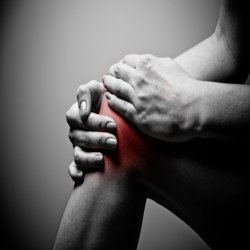Back pain may have a direct influence on the development of knee arthritis according to two new studies.
In the first study, 261 subjects with visible signs of arthritis on radiographic imaging were selected. Of these subjects, 151 also had low back pain. The researchers found that in the subjects with low back pain, the symptoms of knee arthritis were significantly greater compared to the subjects without low back pain.
A second study involving 146 males and 135 males examined radiographic imaging of the knees as well as CT scans of the abdominal trunk muscles. Researchers found that subjects with more significant signs of knee arthritis also had smaller paraspinal muscles.
Conclusions
There are many possible explanations why low back pain may be linked with arthritis. These studies suggest that at least one factor may be that weak muscles of the core contribute to the increased knee problems.
This example illustrates the concept of “regional interdependence” and is not overly surprising; in DNS courses, it is commonly taught that functional upper and lower extremities require a stable trunk to move around. Instability at the trunk can lead to negative changes in hip and shoulder functioning, which could put extra stress on the knees.
Practitioners who are treating knee pain should be sure not to focus exclusively on the knee and should take a global look at all areas of the body that could be contributing to dysfunction.
References
